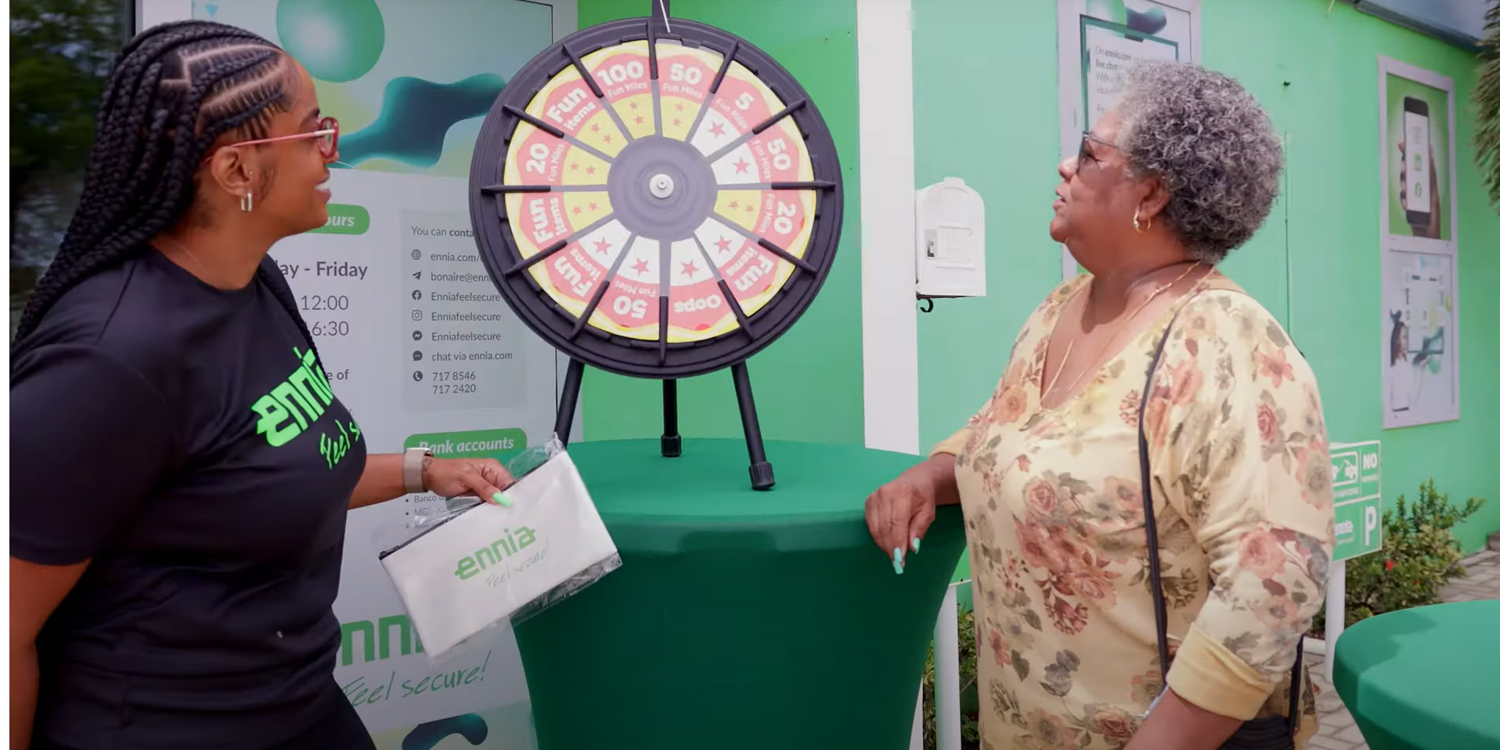
ENNIA ta adoptá e insiativa di CHATA Stars of The Industry.
ENNIA i CHATA ta uni forsa pa hiba Stars of the Industry na e siguiente nivel.

ENNIA i CHATA ta uni forsa pa hiba Stars of the Industry na e siguiente nivel.

ENNIA en CHATA bundelen hun krachten om Stars of the Industry naar een hoger niveau te tillen.

Een terugblik op onze Take Off with ENNIA pop-up op Bonaire. Kun jij raden wat onze volgende pop-up locatie wordt?


Dit weekend was Team ENNIA actief in de gemeenschap tijdens CURA DOET 2024!

Special Olympics Bonaire vierde een geslaagde walkathon met 900 deelnemers! Opbrengst naar de Nationale Spelen 2024.